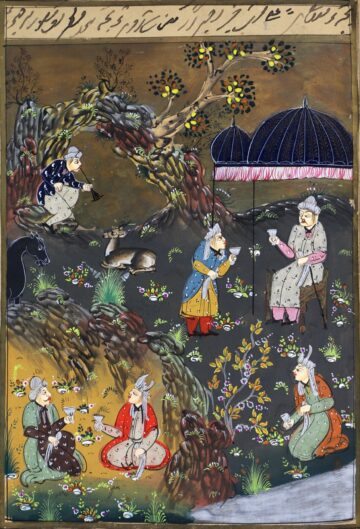The Central Asian Studies project of the IIS facilitated a one month research course for local scholars in Dushanbe, Tajikistan in July 2005 on Qualitative Research Methods and Interpretative Perspectives. This course was the first of its kind in Tajikistan, with the primary aim of enhancing the research skills of scholars in the region, to enable them to produce high-quality and reflexive research.
Two core courses, ‘An Introduction to Qualitative Research’ and ‘An Introduction to Anthropology’ werefacilitated by a team of scholars from the Institute including Akim Elnazarov, Dr Zulfikar Hirji and Dr Sarfaroz Niyozov. Supporting lectures on various topics were delivered by Dr Najam Abbas and Sultonbek Aksakolov, also members of the Central Asian Studies project, and by Mr Rizwan Mawani, an IIS graduate and independent scholar from Canada who has been associated with the Institute for a number of years.
Guest speakers at the course included Professor Muso Dinorshoev, Director of the Institute of Law and Philosophy of the Academy of Sciences of Tajikistan; Professor Dodikhudo Karamshoev, a well-known scholar in Pamiri Studies, Professor Nisurmamad Shakarmomadov, The Institute of Humanities of The Tajik Academy of Sciences, and Dr Sharofat Mamadambarova, Program Manager, Aga KhanA title granted by the Shah of Persia to the then Ismaili Imam in 1818 and inherited by each of his successors to the Imamate. Humanities Project.
The topics that participants were introduced to include: research perspectives and paradigms, research methods, critical analysis of texts, techniques of data collection and data analysis, writing of research reports, and ethical issues in research. Discussions also centered on issues of ‘Orientalism’, including ‘Soviet Orientalism’, ‘Tradition and modernity’, ‘Anthropology in Muslim Societies’, and ‘The Use of IT in Qualitative Research’. An important dimension of the course was to provide a forum to enable participants, some of whom are prominent and known scholars in their fields of study, to share experiences and critically engage with their own research, knowledge and understanding. Participatory and dialogical pedagogies with a blend of theory and practice and experiential learning were key factors in the course’s success.
A majority of the participants who attended the course have been engaged in a variety of research projects in conjunction with the IIS, and represented a wide range of disciplines in the humanities, including the areas of anthropology, linguistics, and oral traditions. Apart from scholars affiliated with IIS projects in Tajikistan, participants came from various other educational and research establishments in Tajikistan such as: Central Asian University; Khorog State University; The Institute of Humanities and Academy of Sciences of Tajikistan; The Aga Khan Humanities Project (Dushanbe); The Institute of Oriental Studies; and The Institute of Linguistics of Russian Academy of Sciences (Moscow).
An important component of the research methodology programme was to engage the participants in developing individual and joint research projects, which they presented for discussion and feedback. The main thrust of the course was to provide a stepping stone in upgrading the participants’ professional skills and enhancing the quality of their research output.






